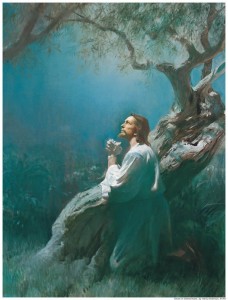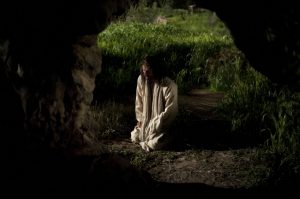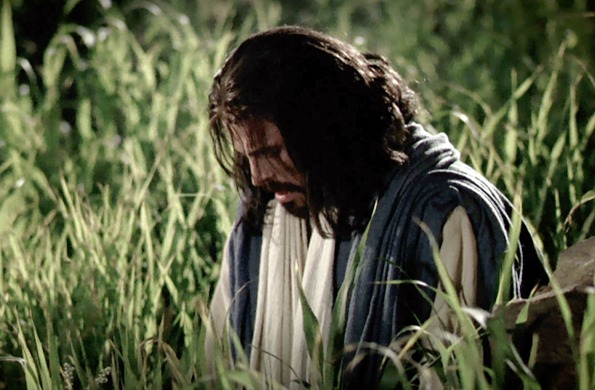It’s a heavy concept, the thought of taking upon oneself the sins of every person who ever has, and ever will, live. Even those of us with the most incredible imaginations could never hope to come close to understanding what it was the Savior took upon Himself that night in Gethsemane.
 All of us have sinned at least once in our lives, even if we did it in ignorance. Many children are taught incorrect truths as they grow up: swearing, hatred, intolerance, etc. I have known such sweet and innocent children, and even teens and adults, who have come to think evil things to be good, because that’s what they have been taught. Christ took every one of those sins upon Himself. But this is not all.
All of us have sinned at least once in our lives, even if we did it in ignorance. Many children are taught incorrect truths as they grow up: swearing, hatred, intolerance, etc. I have known such sweet and innocent children, and even teens and adults, who have come to think evil things to be good, because that’s what they have been taught. Christ took every one of those sins upon Himself. But this is not all.
There are those out in the world who know what the laws of God are, and knowingly break those laws. At some point in their lives, they have been taught what is right or have felt the promptings of the Holy Spirit telling them what they are doing is wrong and have ignored those feelings. Even to the most vile sinners has the Lord offered the chance to be cleansed, by taking upon Him those sins, fully experiencing what they experienced and knowing why they did what they did. But this is not all.
“In Gethsemane Jesus took the full force of God’s overwhelming and retributory punishment. Justice demanded it, and we, who are sinners, deserve it. According to the rules framing the universe, the full consequences of transgressed laws cannot be dismissed or overlooked. They must be borne by someone – the sinner or the substitute. Jesus was that substitute for all of us who will allow him to be so” (Andrew C. Skinner, Gethsemane, Salt Lake City: Deseret Book, 2002, p.51).
In other words, when we sin, justice demands a punishment. If we do not repent, we must face the punishment ourselves. However, if we become remorseful, and truly repent of the sin(s) committed, Christ’s suffering in the Garden will be enough to erase the sin. He has already endured the punishment for us. But this is not all.
In the Book of Mormon, which is another testament of Christ, we are taught a new truth concerning what the Savior took upon Himself in the Garden of Gethsemane. These words come from a prophet by the name of Alma, who lived in the Americas around 80 BC.
“And he shall go forth, suffering pains and afflictions and temptations of every kind’ and this that the word might be fulfilled which saith he will take upon him the pains and the sicknesses of his people.
“And he will take upon him death, that he may loose the bands of death which bind his people; and he will take upon him their infirmities, that his bowels may be filled with mercy, according to the flesh, that he may know according to the flesh how to succor his people according to their infirmities” (Alma 7:11-12).
 Christ took upon Himself our infirmities. What does this tell us? It means that He knows what it’s like to have cancer, lupus, multiple sclerosis, autism, depression, and myriads of other illnesses and diseases we are sometimes asked to endure to bring us a little closer to Him. Not only this, but He understands our pains. He knows what it’s like when we lose a loved one to death, to watch someone suffer needlessly and feel unable to help, to be tempted to the point of aching to give in. He knows and understands everything we will ever go through, whether it’s what God the Father places on our shoulders to endure, what we will bring upon ourselves through incorrect choices, or simply just the trials associated with mortality. He knows. Surely all of this should be enough for us to be spiritually saved, but even this is not all.
Christ took upon Himself our infirmities. What does this tell us? It means that He knows what it’s like to have cancer, lupus, multiple sclerosis, autism, depression, and myriads of other illnesses and diseases we are sometimes asked to endure to bring us a little closer to Him. Not only this, but He understands our pains. He knows what it’s like when we lose a loved one to death, to watch someone suffer needlessly and feel unable to help, to be tempted to the point of aching to give in. He knows and understands everything we will ever go through, whether it’s what God the Father places on our shoulders to endure, what we will bring upon ourselves through incorrect choices, or simply just the trials associated with mortality. He knows. Surely all of this should be enough for us to be spiritually saved, but even this is not all.
There came a point in those awful hours, when He had gone through so much already even to the point of having an angel there to strengthen Him (Luke 22:43), when one more thing had to happen for the Atonement to truly be complete. The Spirit of God was removed from Him. Think for a moment about how terrifying and horrible this must have been to someone who had never been without the light of God the Father in His entire life. In that moment of spiritual darkness, He became subject to the fullness of Satan’s wrath.
Boyd K. Packer, a late apostle of the Church of Jesus Christ of Latter-day Saints, said:
“He, by choice, accepted the penalty for all mankind for the sum total of all wickedness and depravity….In choosing, He faced all the awesome power of the evil one who was not confined to the flesh, nor subject to mortal pain. That was Gethsemane” (Boyd K. Packer, “Atonement, Agency, Accountability“, Ensign, May 1988).
It was then, divided from the light of His Father, enduring everything we choose and are asked to go through, subject to the worst Satan could inflict, that Christ began to bleed from every pore (Luke 22:44). What did Christ do in this awful moment? He began to pray more earnestly. This man, who knew more about prayer than anyone on Earth could ever hope to understand, prayed even harder.
 At last it was done. Can there have been a more achingly glorious sight, unless it be the Resurrected Christ, than the picture of Him rising to His feet. Shaking, drenched in sweat and blood, He arose victorious! How the angels in Heaven must have cried out in joy! I would imagine the most comforting words to Jesus must have come from His Father. “Soon,” He might have said, “you will have rest. Just a little while longer, and we will be together again.”
At last it was done. Can there have been a more achingly glorious sight, unless it be the Resurrected Christ, than the picture of Him rising to His feet. Shaking, drenched in sweat and blood, He arose victorious! How the angels in Heaven must have cried out in joy! I would imagine the most comforting words to Jesus must have come from His Father. “Soon,” He might have said, “you will have rest. Just a little while longer, and we will be together again.”
Christ did all of this for us and for His Father. In taking upon Himself everything, justice has been satisfied. We can repent and become clean again. The light of God can be a constant in our lives. All of these blessing and more, because our Elder Brother descended far below us all.
All of this because He loves us.
This post was originally published in 2013. Minor changes have been made.







Beautiful explanation. Thank you for sharing.
Isn’t it?! I love this post so much. Thank you for your sweet words!